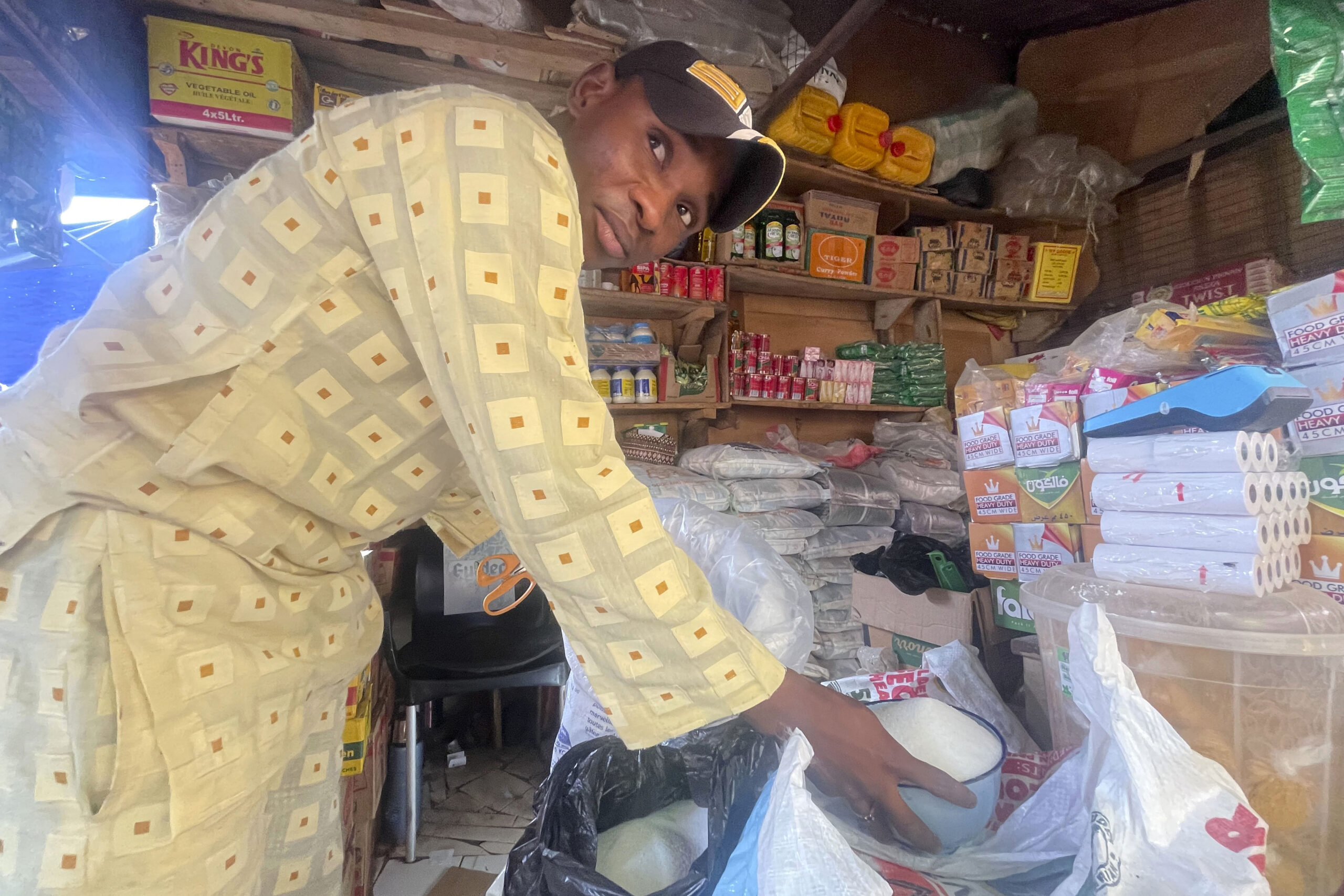Nigeria eyes $1.3 billion package to combat soaring prices

Abba Usman sells granulated sugar at his shop inside a market in Abuja, Nigeria, Friday, Oct. 27, 2023. The same 50-kilogram (110-pound) bag of sugar that Usman bought a week ago for $66 now costs $81. As prices rise, his customers are dwindling. (AP Photo/Chinedu Asadu)
Abuja, Nigeria — Nigeria’s president has proposed a $1.3 billion package to combat soaring prices and food insecurity as the country battles its worst economic crisis in a generation, the finance minister said on Thursday.
The two trillion-naira package is still only a plan as Bola Ahmed Tinubu faces pressure to ease the burden of economic reforms he brought in after becoming president last year.
Tinubu ended a fuel subsidy and currency controls, leading to a tripling of petrol prices and a spike in living costs as the naira has slid sharply against the dollar.
READ: Anger as Nigerian president changes national anthem
The measures have hit people hard and many poor Nigerians have had to skip meals, while in the north the economic crisis has forced people to eat poor-grade rice used as fish food.
Finance minister Wale Edun has been appointed the chairman of a new council the president set up to help “put together for his consideration a 2 trillion Naira package.”
Edun said it included around $229 million towards health and social welfare and roughly $328 million for agriculture and food security.
“The number one priority that Mr. President focused on is food production, food security, nutrition security,” Edun said in a statement.
The finance minister insisted the government would be able to fund the package, which he said would be implemented over six months.
READ: 18 killed in multiple Nigeria suicide attacks, says emergency services
He told AFP the funding would “not impose any additional burden” and was set to come partly from higher oil revenues as well as unallotted budget reserves and ongoing support from the World Bank.
“The intervention measures are a realistic package targeted at specific areas of the economy which will address issues requiring immediate attention,” he said.
The minister also outlined other proposed measures and targets such as increasing the country’s limited power supply, reducing losses in the oil sector and boosting production.
Nigeria, an OPEC member, has struggled to increase its oil production due to oil theft and foreign companies shifting to offshore operations.
Inflation hit record levels at 33.95 percent in May, with food inflation more than 40.6 percent, according to the national bureau of statistics.
Government officials acknowledge the reforms have created hardship for Nigerians, but they have repeatedly called for patience to allow the measures time to work.